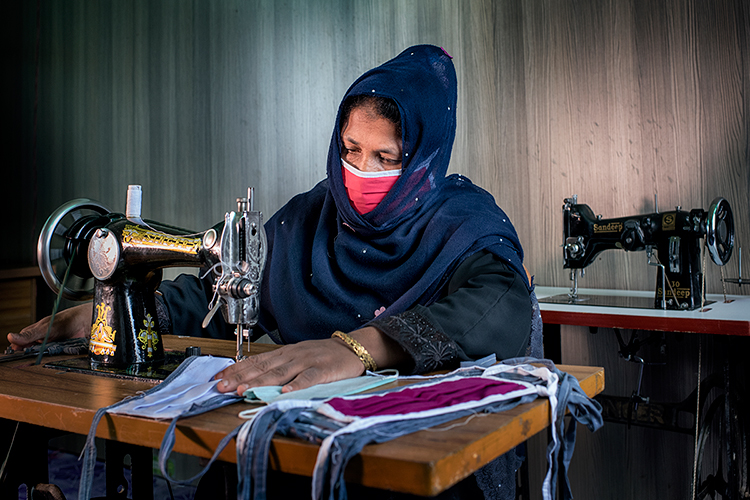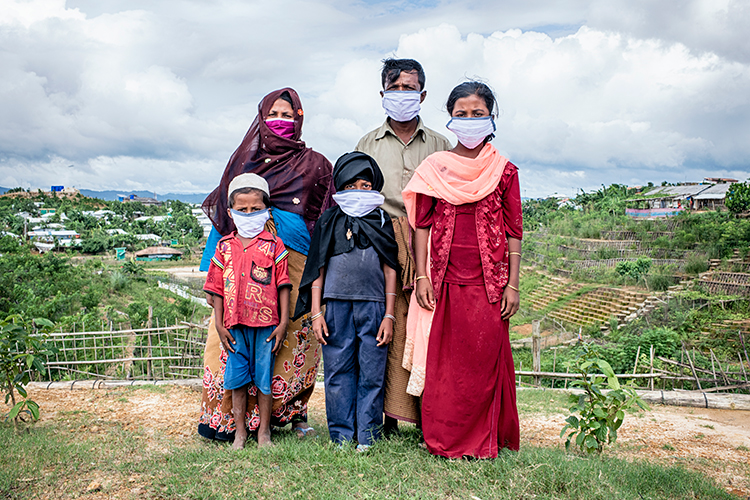Sewing masks to survive Covid-19
Anowara lives in the Rohingya camp in Cox’s Bazar Bangladesh, and is a mother of five kids, two sons and three daughters.
Since the beginning of the pandemic, ActionAid’s women-friendly spaces have been adapted to help and support the population. Anowara often visits these spaces, which she calls “Shanti Khana”: in the local tongue this term means a “place of peace” or a refuge, and in this context it is used for physical spaces where women can be with other women, be understood and unharmed.
“We don't have the money to buy a mask and I did not know how to make masks before. After coming to the Shanti Khana, we can let the children play in the playroom and we learned to sew masks. I have learned sewing here for three months. After sewing, I can wear it myself, and also sell it and earn money. We are living on this money.” Thanks to the money she makes by selling her masks, Anowara pays for the children's food and runs her family’s household.
Anowara usually gets soap and water when she visits the “Shanti Khana”, because she has no money to buy it for her house. ActionAid’s women.friendly spaces also provide the local population with prevention advice with the help of doctors, who explain the importance of social distancing, handwashing and mask-wearing.
These measures are extremely important in crowded spaces such as the Rohingya camp, where it is not possible to keep a distance. Thousands of people are living in the camp and do not have the possibility to practice social distance: in these conditions, it is extremely difficult for the refugees to protect themselves.
In emergency conditions, women are those who pay the highest price. Due to the lockdown, women cannot go out of their houses and lose access to their support network, even if it means talking to neighbors or relatives. In Cox’s Bazar, as in many other places in the world, cases of domestic violence towards women and girls are risen. Bangladesh itself has registered +983% increase in sexual and domestic violence in March and April 2020, compared to the same period in 2019 (ActionAid, “Surviving Covid-19", June 2020).
Anowara is worried about the problems affecting her community, especially the lack of soap, water and money to buy food. She is thankful to women-safe spaces, which were built thanks to the generosity of ActionAid’s supporters: “ActionAid has helped us a lot. We made money by sewing. With this money, we were able to run the household. On behalf of our entire Rohingya [community], I would like to thank ActionAid. Thanks to ActionAid more and more. Assalamu Alaikum”.


